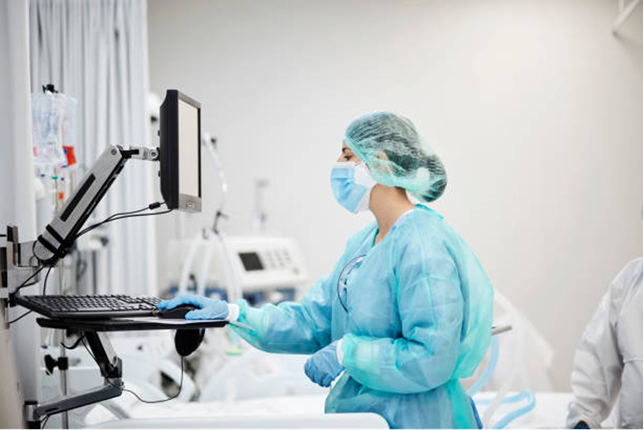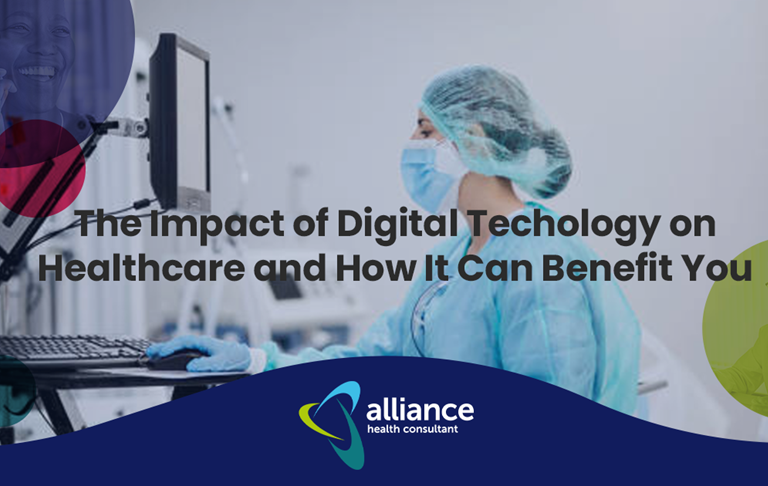The impact of digital technology on healthcare
Technology is being increasingly incorporated into healthcare, which is set to revolutionize current medical practice. Our lives have become increasingly interconnected as we live in the digital age. All lifestyle aspects apply to the healthcare industry, as well. Technological advancements in healthcare have a rather obvious impact on the quality of healthcare providers and patients alike as they offer both an improved experience. Medical care standards have been greatly improved by digital technology. Digital technology makes a significant contribution to healthcare by providing treatment opportunities, knowledge, learning opportunities, etc.
Our world has evolved so much technologically since the dawn of time. Healthcare technology follows the same trend. Healthcare reform has improved both patients' and medical professionals' experiences through improved efficiency and higher standards of care. Healthcare has been impacted by digital technology in the following areas:
A safer access to medical reports and data:
One of the most important benefits of the digital revolution is data storage and access. Patients' data can now be retrieved from anywhere by healthcare professionals. Medical personnel no longer have to sift through piles of paperwork to find out relevant information about individual patients. The digital transformation has made it possible for doctors to pull out a patient's medical history within seconds, with the help of computers and digital data. Additionally, healthcare professionals can share medical information rapidly and easily using the intranet and the internet, leading to more efficient care delivery.

Managing large data:
Digital technology also makes gathering big data a breeze for clinicians. Data can be collected on a much broader and more diverse population with digital technology than ever before. Meta-analysis can be performed on this data, which enables healthcare professionals to stay abreast of the latest trends and digital advances. Big data helps clinicians identify potential risks and suggest appropriate prevention and treatment measures.
Advances in communication:
In the past, healthcare workers used beepers to communicate. With the advancement of digital technology, communication among medical professionals working in the same facility, between doctors and patients, and professions within various medical fields has been transformed and improved. Medical professionals can communicate via email, smartphones, text messages, etc.
Medical professionals can create webinars, videos, and use social media to communicate with each other and keep the patients informed about their test results and upcoming appointments. Nowadays, it is easy to communicate using phones and text messages.
E-health records:
The advent of digital technology has greatly enhanced patient medical records. Patient and provider satisfaction has greatly improved due to electronic health records (EHR). EHRs have enabled a centralized repository of patient data and better access for improved care. Medical billing is also made easier, quicker, and smoother with EHRs. By using the data, you can offer more focused and accurate care to each individual and see their health trends.
Healthcare/Telemedicine:
Many parts of the world continue to suffer from a shortage of healthcare providers. Video conferencing is one of the most cost-effective ways to supplement local health services with Telemedicine. Telehealth made significant gains as a means to prevent virus transmission during COVID-19. For patients who can't physically come into the clinic, psychiatrists often provide counselling via telehealth. Healthcare workers in remote areas are also being educated and trained via telecommunications.
Online Training
Online education is another benefit of digital technology, specifically for healthcare-related degrees. Students and medical professionals have also been able to gain educational experience through the use of digital technology in healthcare by obtaining health-related degrees online or updating their knowledge through digital forms of education. Video platforms allow all kinds of communication activities, including sharing educational materials required for a student's degree.
Health Related Apps
The digital revolution has also led to the development of hundreds of health apps. Patients can use these apps to monitor their health and disease, find out medical information, view their test results, and receive reminders when it's time for their routine checkup. Apps for healthcare workers also allow them to quickly access testing results, drug dosage recommendations, and a range of other information they need. Patients only need to click a few times to access full reports about their conditions in the digital age.
In general, digital technology has revolutionized healthcare. These transformations will likely continue in the future. The possibilities for digital technology in healthcare are limitless, if hospitals and healthcare professionals maintain an open mind and build the correct infrastructure.

